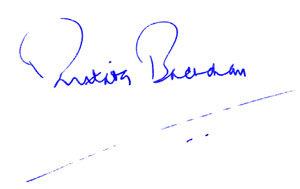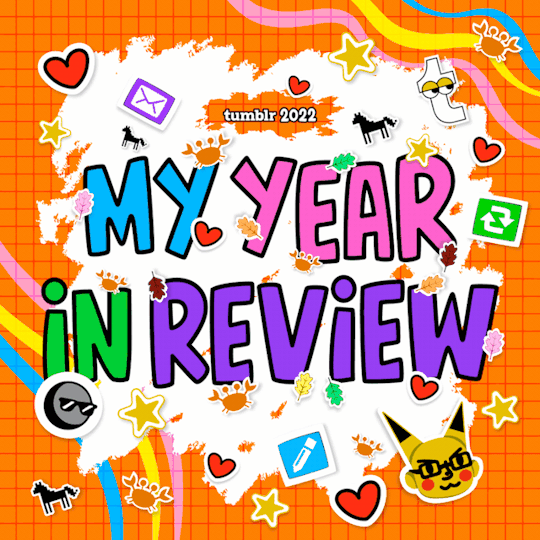#Motivational Proverbs In Languages
Text
Enhance Your Ability To Communicate In Today's Globally Connected World
Enhance Your Ability To Communicate In Today’s Globally Connected World
Mark 11:23I tell you the truth, you can say to this mountain, ‘May you be lifted up and thrown into the sea,’ and it will happen. But you must really believe it will happen and have no doubt in your heart.Mareka 11:23Ke a go botša therešo, o ka re go thaba ye, ‘Anke o phagamišwe gomme wa lahlelwa lewatleng,’ gomme go tla direga. Eupša o swanetše go dumela e le ka kgonthe gore go tla direga gomme…

View On WordPress
#Afrikaans Fair Speaker#Competitive Advantages In Languages#English Native Speaker#Faith Moves Mountains#Globally Connected Languages#Holy Bible Reading In Six Languages#Holy Faith#IsiZulu Fluent Speaker#Jesus Is God#Just Do The Language Before It Does You#Language Department#Language Doesn&039;t Count Religion#Mark 11:23 In Six Personal Known Languages#Motivational Proverbs In Languages#No Faithlessness#Read Holy Bible In Your Favorite Language#Sepedi Native Speaker#Spanish Fair Speaker#Urdu Fair Speaker#Word Linguisticity
2 notes
·
View notes
Text
"If you are charitable, you are rich."
Arabic Proverb
leave a little kindness
#juli-quotes#mental health#arab#arabic#proverb#arabic proverb#literature#academia#light academia#dark academia#language#culture#charity#kindness#rich#humanity#self-help#inspire#motivation#peace
10 notes
·
View notes
Text
https://youtube.com/shorts/zMQEPIQQI-8?si=snH4Rbt5Y57-j5fy
Learn English *PROVERBS*
Please watch, like, share, comment & subscribe our NEW CHANNEL
VENU'S SPOKEN ENGLISH
In this channel you will get only spoken english content.
https://www.youtube.com/channel/UCRq_UgLD9Dqd_efne6Qf2Sw
Thank you so much for all your support
#english #spokenenglish #proverbs #learnenglish #englishshorts #shorts #shortvideos #englishvideos
#simpleenglish #specialenglish
#good morning#morning inspiration#spokenenglish#english#grammar#morning motivation#vocabulary#proverbs#language
0 notes
Text
DAY 5806
Jalsa, Mumbai Jan 9/10, 2024 Tue/Wed 8:28 AM
🪔 ,
January 10 .. birthday greetings to Ef Sapnaa Sandilyaa ..
Ef Hoda from the great Egypt 🇪🇬 ..
Ef Manuela from Italy 🇮🇹 ..
Ef Palkan Nagori Dave ..
and Ef Rajesh Lodha from Chennai ..
love to all and wishes from the Ef Family .. ❤️🙏🏻🚩
Once right .. always right ?
Never .. pits and falls are the basics of a developed well lived life ..
AND .. motivational learning from an Ef :
'a man is alive by love .. and he is only living by (bread)' ..
and to understand it better ..
'if one lives for love alone, then his Soul and heart , mind and body .. they shall be alive .. but if man seeks only (bread) for a living .. then everything in him will die and his daily running after bread, will only keep his body alive from death .. when in truth he is a walking corpse .. soulless .. heartless'
yes at times it is difficult to give a proverb complete understanding when it has been written in another language .. this one above is such
So live to work by seeking bread .. to survive physically .. but philosophically it is the 'living' that brings the completeness of the Soul and the Heart ..
Or so I would interpret ..
Its getting a little too heavy for the Blog so shall refrain and end .. there is other work to attend to and I shall ..
Love and more ..

Amitabh Bachchan
Push the lighted lamp on to the boat of its travel .. into the sea of life .. row your endeavour till you find your ship of destination ..




AB
108 notes
·
View notes
Text
Drow Lore 🕷️ Common Phrases

Collection of common phrases used among drow, according to Drow Of The Underdark (DnD 3.5e).
In 3.5e, drow were supposed to use a combination of Undercommon language (Underdark equivalent of surface Common) and various dialects of Elven instead of developing their own unique language. So, phrases below are not written in a "proper" Drow - they still provide a nice insight into drow culture, though:
🕷️ Inorum lo’athi, uvrastes (In darkness, there is opportunity) - one of the most popular drow proverbs, urging to always look for an advantage.
🕷️ Su lidos verith (Only the strong survive) - or, more accurately, "Those who survive are strong", since in comparison to the surface version of this phrase, drow version reverses cause and effect.
🕷️ Resilsh nielquosthos nilt resilsh (Help unasked for is never help or Help freely offered is not free) - proverb admonishing to always watch for ulterior motives.
🕷️ Alrenas Lolthu, nilos dulhar (Before Lolth, all are weak) - commonly used as a religious invocation, but also as an expression meaning that nobody is perfect. Can be used as an excuse for one’s own failure, or as a backhanded comment on another drow's failure.
🕷️ Nilodi orhastho shiorell e farul (Weakness is the spawn of contentment and affection) - a common admonishment against growing too happy with one’s station, or too fond of the ones who share it.
🕷️ Artolth nilat unelte nilt peralath (A spider without a web is no
hunter) - one who tries to achieve something unprepared does not deserve success and should not expect it.
#drow#lolth sworn drow#dnd lore#drow lore#dark elf#dark elves#drow culture#drow quotes#drow language
36 notes
·
View notes
Text
MASTERLIST
(Korean-Learning Content)
Here Is A List Of Most Of The Content I Have Made So Far. (you can only add 100 links per post, so I have to make a second part I guess🤡. I'll link to it in this post whenever I finish doing that.)
Note: these are in no particular order. It's kind of all over the place, but it should still help you out😂
Beginner Topics
1. Seasons in Korean
2. Months In Korean
3. Vowels Hangul Short Quiz
4. Beginners Vocab Short Quiz
5. Days Of The Week
6. Tell Date In Korean
7. What's Next After Learning Hangul?
Korean Grammar
아니요 vs 아니에요 vs 아니라
는데, 은데, 인데 Lesson | All Usages
Masterlist Of Beginner Korean Grammar
좋다 vs 좋아하다
기 때문에 & 아/어/해서 & (으)니까
-안 vs -지 않다
How To Say "IF" In Korean
How To Ask Questions In Korean
(으)러 가다, (으)려고 하다, 기로 하다 Lesson
(으)ㄴ지 Lesson
Korean Dialogues & Conversations
1. Mini-Korean Conversation | Topic : Coffee | #1
2. Intermediate Korean Convo | Topic : Amusement Park | #2
3. Korean Conversation - Grammar-Focused | Topic : Haircut | #3
4. Low-Intermediate Korean Convo | Topic : Meeting For The First Time | #4
5. Grammar-Focused (ㄹ때, 지 말라고, & 어/아야 겠다) | Topic: Kids On Their Phones | #5
6. Beginner Korean Conversation + Lots Of Beginner Grammar Covered | Topic : Deciding Where To Eat | #6
7. Beginner Korean Conversation | Topic : Drawing
8. Korean Convo | Topic : Karaoke | #8
9. Intermediate Korean Dialogue | Topic : School-Related | #9
10. Beginner Korean Dialogue | Topic: Birthday presents
11. Short Beginner Dialogue | Topic : meet up
12. Beginner Korean Conversation | Topic : Taking Pictures
13. Intermediate Korean Dialogue | Topic : The Best Way to Make Ramen
14. On The Phone With My Girlfriend
15. Sending A Text To The Wrong Person
Reading Practices & Stories
Reading Comprehension Test | Topic: small talk
Story About Friend Moving Away
Listening Practice
Beginner Listening Practice #1
Korean Listening Practice #2
Korean Listening Practice #3
Vocabulary Lists
1. Jobs & Occupations List In Korean
2. School Vocabulary
3. Korean Homonyms | Part 1
4. Night-Themed Vocabulary List
5. Korean Homonyms | Part 2
6. Word Of The Day ~ 거북이
7. Mini-Vocabulary List - Weather
8. Common Korean Verbs > Short Video
9. Mini-Vocabulary List - Nature
10. Language Learning Vocabulary
11. Korean Homonyms | Part 3
12. Word Of The Day ~ 불
13. Word Of The Day ~ 약간
14. Health & Medical Terms
15. List Of Adverbs
House Vocabulary
16. Commonly Confused Korean Words 1
17. Commonly Confused Korean Words 2
18. Commonly Confused Korean Words 3
19. Korean Fruit Names
20. Korean Homonyms
21. Flower Vocabulary Words
22. Korean Love Words | words & phrases w/ 사랑
23. 지금 vs 이제
24. 알아듣다 vs 이해하다
25. Korean Synonyms
26. Korean Filler Words
27. Korean & Japanese Words
28. Korean & Japanese Words (part 2)
29. Hair Vocabulary
30. Shapes In Korean
31. Korean ROOT Words
Korean Numbers
1. How To Count From 1 to 1000 using Sino-Korean Numbers
2. The Difference Between Sino & Native Korean Numbers
3. Korean Numbers Quiz > 1 to 100
4. Korean Numbers Quiz > 100 to 1000
Idioms & Phrases
1. Korean Proverbs
2. 김새다 = Ruin The Fun | Idiomatic Expression #1
3. 어쩔 수 없다 = It Can't Be Helped | #2
4. How To Say Ignorance Is Bliss | #3
5. 쓸모가 없다 = It's Useless | #4
6. 기가 막히다 ~ "to be at a loss for words" | #5
7. 기가 죽다 ~ lose confidence/less energy and feel depressed | #6
8. How To Say I Don't Care | #7
9. 말도 안돼요
10. Motivational Korean Quotes
11. Idioms That Are Too Relatable
12. Korean Break-Up Lines & Quotes
13. Funny Korean Expressions
14. Non-Basic Korean Phrases
Tongue Twisters
1. Mokdong Royal | Short Tongue Twister | #1
2. 경찰청 ~ Police Headquarters | #2
3. Longest Korean Tongue Twister + Breakdown | #3
4. 3 Short & Fun Korean Tongue Twisters
5. Short Korean Tongue Twister: Moon
6. Giraffe Tongue Twister
Korean Culture
1. List Of Korean Holidays
2. Difference Between North & South Korea
3. Tropes Seen In Kdramas
Interesting Random Topics
1. 3 Ways To Say 'Heart' In Korean
2. Korean Text Slang
3. Korean Combination Words
4. Korean Study Materials
#한국어#korean langblr#korean language#korean lesson#study korean#koreanmasterlist#masterlist#한국어 공부#learning korean
1K notes
·
View notes
Text
♪ Dazai and Fedor in prison ♪
*They definitely couldn't have avoided sneezing, I mean they were sitting across from each other for a long time and sneezing in front of each other was inevitable, I plan to write two parts, one with Dazai and one with Fedor, this is the first part, in this part I'll describe Fedor's sneezing.
Notes: he mentioned that he's in poor health, and sitting without fresh air in a rather cramped room has obviously crippled his already weak immune system, sorry for the long introduction, let's get started:3
♤
♤
♤
♡
♤
That night Fedor didn't sleep well, he felt dizzy and weak, his not sound sleep was awakened by the breakfast notification, and Dazai's ringing voice saying
<Ahhhhh~~~I don't want to get up yet.... this bed is beckoning me~ i want to sleep for 5 more minutes, plus there are no crabs, so there's even less motivation to get up for breakfast^^^^ >
His ringing voice made Fedor feel more dizzy and had a slight headache, but he found the strength to reply:
<Dazai-kun, did you know that he who rises early to God falls? (This is a russian proverb ) Apparently you don't appreciate god if you don't even try to get out of bed, you'll be out of favor unlike me. >
- Ahh.... we've already been through this Fedor-kun :<
* Dazai wrapped himself even tighter in the blanket *
- You're so lazy, and laziness is a sin.
replied Fedor.
- Who's talking about sins, Fedor-kun?
Dazai peeked out from under the blanket and gave Fedor his smile.
- Those who have done evil expect evil from others, don't you Dazai san? Kgk-kgk-kgk
*♪ Dostoevsky coughed
- Exactly🎶
Dazai said methodically
*Dazai started to eat*
- Hmmm…I'll eat it later
Said Fyodor and put his plate on the table since he had no appetite and took out a book.
*♪ Dostovesky sat reading a book and then he got a sniffle in his nose ♪
- Ha-chih.
- М? *♪ Dazai looked at him questioningly ♪
Fedor ignored his question and continued reading the book, but his nose started to twitch
- Ah...heh...ha.
He sat with his mouth open and couldn't sneeze, but the itching got worse but didn't turn into sneezing.
-Hahhhh... heh... heh... heh...
Fedor even had to stop reading and started staring at one point with a blank stare, Dazai noticed and started looking at him.
- what's going on with you? Asked Dazai
- Nothing... Ahh ... go...hehe...hehe...htz ..AHHH.
That was a false sneeze.
- Ahem...God bless you?
-Heheheh...Ah...HA-CHHHEE.
Dostoevsky sneezed very loudly without expecting it, his body treudos forward from the impulse his book fell out, Dostoevsky lost his finger under his nose and said.
- Thank you, but I'm already blessed by God.
- ♪ More like a demon ♪
* said Dazai with a smile *
Fyodor walked to pick up the book, but he was overtaken by another sneeze
- Ha...heh...ah...achhi...achhi..! Damn it.
- What ungodly words you use.
But Fedor couldn't answer because he had a seizure.
- Achhee...hee...ha...haa- Chirk...Hachik
- Apparently even demons get sick~
* said Osamu with a cheerful tone, but Fedor ignored him *
Important: Sorry, English is not my native language, I’m writing through a translator, this is my first FF, I hope it’s not that bad (I also wanted to mention that I’m from a Russian-speaking country (To be precise, I’m from Ukraine, many here speak Russian) and knowing this and the fact that Fedor is most likely Russian, I I wrote what his sneezing might sound like in Russian, I hope I was able to convey this, if you want to hear how sneezing basically sounds in Russian, then type into the translator which has a pronunciation function, <Апчхи> or <Апчи> this is how sneezing sounds and is written in Russian, This is what I tried to write in English letters
thank you very much if you read this ff, I really tried, I hope it’s not too cringe, I will improve myself~~~
💕💕💕💕💕💕

22 notes
·
View notes
Text
Talking Style by Enneagram Type
I hadn’t put these on tumblr & it occurred to me that I probably should
1: ‚Teacher-like‘ – sermons, lecture, life advice, evaluation, criticism, moralizing, matter-of-fact, straightforward, improvement suggestions, detail corrections, admonishing, enforcing rules, Voice of Truth(TM), expressing visceral disgust or outrage at bad deeds, lots of „shoulds“ and „oughts“, reminding of obligations, „thats not right/fair“, ultimatums and yes/no questions, focus on coming up with clear plans of action – they also ask advice & feedback more than other types.
2: friendliness, effusiveness, flattery, complimenting, personal, establishing rapport, supporting, checking on you, comforting, sympathizing, pitching in, offers, virtue-signalling, emphasized emotionality sometimes to the point of theatrics, giving advice sometimes to the point of seeming a bit pushy or bossy with it, laments on yours or a third person’s behalf, postive reinforcement, second person language
3: confident, professional, smooth, efficient, goal-focussed; self-presentation, mentions archievements, sucess stories & activities, what theyve been doing recently, promoting, boasting, motivating, encouraging, extolling, „advertising/selling“, praising, pushy, impatience, appeals to common cultural symbols/emotional associations like movies, job stereotypes, celebrities etc., plans, actions, short & useful questions, future oriented language, encouraging action & movement
4: Lamenting, yearning, longing, extolling somethong they idealize, whining. „bitching“, Breathy voice, Ellipses or trailing off, disdainfully lambasting while drawing distinctions. („Not like those people“) Lots of adjectives. Poetic/affected/deliberate phrasing, flowery, larger than life language. Regrets & talk of shortcommings. Talks about self & own experience, personalizes& specifies. If you catch them in a good mood they can also be somewhat hyper and witty.
5: Content-focus. Detailed explanations. Definitions. Systematic and ‚sectioned‘. Brings up topics that may seem out of context. Either short noncomittal statements or long rambly "treatises". Tangents, run-on sentences, adverbs. Descriptive comparisons. Arguments appealing to rationality, objectivity or neutrality. Quotes & proverbs. Low volume, formal language, jargon, technical terms. Few pleasantries, says little unless some relevant topic comes up.
6: Warnings. Limiting Statements. Formal but warm. Appeals to realism & common sense, bringing lofty talk „back down to earth“. Lots and lots of precise questions. Troubleshoots, problem solves, rants, accuses, defends, blames, complaints as a bonding method. Second-guessing, self-deprecating and/or dark humor, disclaimers & qualifying statements, worst case scenarious, „...but what if…“ uncertain or tentative, carefully chosen words, bouncing off suggestions
7: fast talking, verbosity, anecdotes, storytelling, future plans, analogies, energetic. enthusiasm, excitability, positivity, light-heartedness, humor, criticizes by mocking, tries to engage the listeners, may try to impress, charm or entertain others with knowledge, skill or experience, scattered or jumping between topics. Can appear distracted or talk about themselves alot. Sing-song voice. Socratic dialogues. „Wowwww how amazing!!!“
8: Short, direct to-the-point and hammer-like. Certain, clear & firm tone. Commands. Imperatives. Snap judgements („What youre doing wrong is...“) Laying trips. Glib, quippy statements. Teasing Profanity. Debating. Arguing, defiance, „unmasking“/calling out , direct confronting, „below the belt“ shots. Military or wilderness related metaphors. Informative, factual, pragmatic. Sometimes quite jolly or unexpectedly sentimental.
9: pleasantries, respectful, considerate, dreamy, meandering, generalizing, vague aphorisms, recounts stories in a lot of detail, may wait for the others to speak first and sort of mirror, sypathize with & validate what you say, usually good listeners, may have to think a bit if asked their preferences. Some can be shy terse or monotonous in new situations or big groups, but grow more animated in a chill familiar envronment/ with trusted ppl, unneccesary apologies
37 notes
·
View notes
Note
Hi! I wanted to tell you how much I love your analysis on SxF, very on point and detailed! What a pleasure to read 😊 There's one thing I wanted to ask you about: translation and how it impacts the perception of a scene. I'm French-speaking native and I discovered the 'Honey trap' in French and then your analysis in English. Loid's reaction to Yor's punch is a bit more 'intense' in French. Not speaking Japanese, I don't know which one is closer to the original text. 'Off-balance' is replaced by 'faire perdre tous mes repères'. Which could mean Loid is 'becoming completely lost' in the French version. So at first I thought that Loid's feelings for Yor were more obvious to himself. Less 'covered' if it makes sense. My point is : do you think we could make wrong interpretation of a character due to a translation? How much differs our version of the dialogues to the original one? Looking forward for new analysis and care take 🌸
Ohh! Hello thank you very much! I appreciate the love that my analyzes have received!! They motivate me to continue!
The answer would be: Yes, the translation influences a lot in understanding the scene. This is a very frequent problem when trying to adapt a series/comic/book to another language. I understand that Japanese as a language is an ideographic language, so its writing represents ideas and thoughts, and is not a composition of precise words.
(I have to clarify that I do not understand Japanese at all. So like everyone I depend on translations, what little I know is from mere research. Any native or connoisseur of the language is free to correct me)
Said that. Sometimes it is very difficult to figure out exactly what is being said in a scene. Especially when they are abstract feelings, puns, expressions of the native language, etc. Since, while in one country something is a joke, in another place it is something that is taken literally xD ...In fact, recently I think there was a translation error in the manga. Where it was believed that Anya was going to get sweets from the Damiand but it turned out to be a specific cake (I didn't understand very well, I guess it's a play on words or something like that xD)... Even so, there is always a lot of support from the fandom to offer clarifications and interpretations. Especially for those who understand the native language
........
Regarding Twilight. I guess it's a complicated sentiment to translate, since Twilight himself has no idea what he was with himself. He felt lost and confused, perhaps the best way to understand it is "I'm not the same person as before".
He just didn't know what to do with Yor, with his feelings. But why would a genius at emotional readings fail so terribly? "The answer" is the simplest and the most difficult to recognize "He can't be cold and calculating in front of Yor and Anya, they cloud his judgment. They make him a common person, clumsy and even somewhat naive. They let out their most human side"
....
Regarding your original language. It may not be so far from what was intended to say: Perhaps they were more explicit. The sense that "Twilight is lost" seems pretty accurate to me. Although, as you say, it sounds like a deeper statement.
I guess someone who speaks Japanese would be the most accurate person to clarify how explicit Twilight was.
Still, I don't think these variations are that serious. Sometimes these changes favor the understanding of native people of another language, so these changes are made to better understand the expression.
Since if the translation were exact. The impact would not be the same. The important thing is to convey the meaning of the works. An example would be proverbs. Although the meaning is exactly the same, the words vary from language to language. This does not harm, on the contrary, it favors each reader because he feels the work "more endearing"
Perhaps in the case of your native language they used the most appropriate expression to imply that "Twilight is missing" for the love of his family, and this is confusing him
#Translating is very complicated#yor forger#spy x family#loid forger#twiyor#loid x yor#yor briar#twilight#sxf#anya forger#spyxfamily twilight#All I know is that man is falling
21 notes
·
View notes
Note
Hiii for thé ask game ☯ and ✌️
☯ - favorite thing abt my language(s)
arabic - it's variety :) there r so many dialects !! and ways of speaking and words and soso much!!
italian - the sound honestly!! it just sounds so pretty
✌️ - favorite proverb
i dont know any arabic proverbs so! italian fave: il lupo perde il pelo ma non il vizio. literarily translated it means the wolf loses the fur but not the habit. which basically says it's hard to lose bad habits :) i like the sound of it a lot & it motivates me too !!
3 notes
·
View notes
Text

I posted 9,488 times in 2022
That's 2,783 more posts than 2021!
1,279 posts created (13%)
8,209 posts reblogged (87%)
Blogs I reblogged the most:
@iloveyoumorethangod
@woundthatswallows
@sourkitsch
@californiaquail
@saintbronte
I tagged 4,659 of my posts in 2022
#all my guys <3 - 249 posts
#loving the wolf - 165 posts
#in this love i’m like a knife - 77 posts
#the meat treatise - 75 posts
#i want you to hit me as hard as you can - 56 posts
Longest Tag: 140 characters
#people will look at you different. pity and with that ‘oh you’re so strong/brave’ but you’ve had no other choice you’ve never known anything
My Top Posts in 2022:
#5

The Act of Judith 1980 – Jerome Witkin
522 notes - Posted July 8, 2022
#4

from Frankenstein illustrated by Lynd Ward
531 notes - Posted April 10, 2022
#3
Critics have found that many of the Yiddish proverbs draw similarities with Kafka’s narratives, including, “What will become of the sheep if the wolf is judge?” and, “The hat is fine but the head is too small” (Furman). Through the Yiddish language, Kafka discovered how he could use words to fill his writings with the irony, paradoxes, and symbolism that characterized Jewish literary culture and the plays that he loved. With the motivation to create, and the influence of what he considered to be authentic Judaism, he wrote, eventually developing a style that was so distinctive the term Kafkaesque was coined to describe it.
Despite the abundant evidence to support the influence that Jewish culture had on Kafka, several literary scholars have questioned the role that it takes in his writing due to the “virtual absence of direct allusions” (Scott 7). Unfortunately, such statements arise from a lack of understanding of Jewish culture, and more importantly Jewish literary devices. These critics fail to recognize the multifaceted nature of the literary technique that Kafka employs. It is for this reason that much of Kafka’s work is shrouded in debate and mystery.
Illuminating Kafka: An Analysis of Jewish Literary Culture in Kafka’s Work by Joseph F. Allen
3,450 notes - Posted July 20, 2022
#2


See the full post
4,928 notes - Posted March 15, 2022
My #1 post of 2022

13,471 notes - Posted April 15, 2022
Get your Tumblr 2022 Year in Review →
7 notes
·
View notes
Text
African Love Is A Clay Language
I Am A Clay,
Clay To Be Treasured,
Clay To Be Held With Care,
God Created Me.
Ancestors Created-Assisted Me With Care,
They Made Sure I Am Strong,
Strong Ad An African Holy Queen,
I Am A Clay.
I Am Strong Inside,
But Fragile Outside,
A Clay That Is From Ancestors,
A Clay That Can Be Found No Where,
I Am A Clay.
Beautily, I Look Modern,
I Look Modern Wholly,
The Real Holy Clay From…

View On WordPress
#African Clay#African Love#African Queen#Ancestors Created With Care#Ancestral Clay#Beauty In Africa#Clay Language#Godly Clay#Motivational Books#Motivational Poems#Motivational Proverbs#Real Clay From God#Treasured Clay
2 notes
·
View notes
Note
heylo ☾ and ✌(for the ask game)
haiii ^_^
☾ (favorite word from your language)
- hiwatig + nagpapahiwatig ; hiwatig means 'hint' and nagpapahiwatig means 'indicating' in tagalog! idk i just like how mystical it sounds
✌️ (favorite proverb/saying from your language)
- mamamatay rin naman tayong lahat (we're all gonna die anyways)
not a saying anyone should be using in a daily basis nor it is a proverb but it does serve as a motivation 4 me n my classmates LMAO
#unrelated to the ask game but id love to write a fanfic in tagalog sometime#(i dont use filipino cuz while tagalog IS filipino theres like. 7000+ different ph dialects)#(filipino when used as a language name is a very broad term tbh)#anyway . hi sie thanks 4 da ask#asks
2 notes
·
View notes
Text
Enough is enough
“A nation is not conquered until the hearts of its women are on the ground. Then it is done, no matter how brave its warriors or how strong their weapons.”(Cheyenne proverb)
We’re experiencing a pivotal moment where Oklahoma can say “enough is enough” and allow women to protect themselves, even in complicated situations. Let me explain.
For the last decade, I’ve been at the University of Oklahoma, and while my journey may be unique, it has always followed the evidence.
My career began as a SWAT officer and police detective. I know firsthand the importance of the justice system and the need to hold people accountable for the commission of crime. The things I saw in those roles made me question why people commit crime and led me to a career in forensic psychopathology.
I moved to Oklahoma in 2013 to investigate differential criminal behavior among women. If you didn’t know, Oklahoma incarcerates women at rates among the highest in the developed world. We are three to five times higher than New York or California and over 15 times higher than Iran, a country currently in cultural and political upheaval regarding women’s rights.
Data shows men and women commit crimes with fundamentally different drives and motivations. While the majority of all criminal justice-involved people have experienced trauma, women who commit crimes have experienced trauma that’s significantly more extreme and problematic.
ACE (adverse childhood experience) scores measure childhood trauma on a scale of 1 to 10. The average ACE in the United States is about 1.5. The average in Oklahoma is about 3, and the average for an incarcerated woman in Oklahoma is over 5 with about 40% of incarcerated women in Oklahoma having an ACE score of 7 or higher.
Adding to the impact of this childhood trauma, upward of 65% of incarcerated women in Oklahoma were in abusive relationships at the time of their arrest. Trauma follows them across their life span and creates a biological injury to the brain that can cause mental illness, and almost always affects behavior and decision making.
However, did you know that evidence of abuse isn’t commonly considered by courts in most states when handing down sentences? In February, Rep. Toni Hasenbeck, R-Elgin, introduced legislation, House Bill 1639, that would help domestic violence survivors who fight back against the person abusing them.
When that legislation passed the Oklahoma House with a unanimous vote on March 22, it was a key step toward allowing the courts to have more discretion when sentencing crimes where domestic abuse plays a significant factor.
HB 1639 also could give women convicted of a crime the opportunity to provide evidence of their abuse for consideration at sentencing modification hearings.
We already know a majority of women in Oklahoma prisons are trauma survivors. Courts not taking into account the abuses these women have suffered is basically saying they’re OK with our criminal justice systems endorsing the abuse.
Rigid sentencing laws have already devastated too many women who have experienced terrible trauma. I think that’s why HB 1639 has had such strong support, so far.
I also strongly believe our state’s lawmakers should maintain the language demanded by impacted families. Our legal system must consider the circumstances behind every crime, and sentences should be proportional — and retroactive — depending on each individual situation.
The authors of HB 1639 didn’t say people should be free to commit crimes or avoid responsibility for their actions. Rather, they said context is important. They got the bill language — both the sentencing angles and the retroactivity — exactly right.
I encourage Oklahoma legislators to pass HB 1639 with full retroactivity, and to limit sentences to 10 years and allow courts to rehear cases and hand down shorter sentences to people who show a significant link between the domestic violence they experienced and their crime.
It’s the right thing to do. Because, truly, enough is enough
By David A. McLeod, Ph.D., MSW, is associate director and professor at the Anne and Henry Zarrow School of Social Work at the University of Oklahoma.
#Oklahoma#USA#women in prison#oklahoma incarcerates more women that Iran#ACE (adverse childhood experience)#Childhood trauma and incarceration later in life#Domestic abuse and Women’s self defense#HB 1639
3 notes
·
View notes
Text
Today’s reading from the ancient books of Proverbs and Psalms
for April 16 of 2024 with Proverbs 16 and Psalm 16, accompanied by Psalm 29 for the 29th day of Astronomical Spring and Psalm 107 for day 107 of the year (with the consummate book of 150 Psalms in its 1st revolution this year)
[Proverbs 16]
People go about making their plans,
but the Eternal has the final word.
Even when you think you have good intentions,
He knows your real motives.
Whatever you do, do it as service to Him,
and He will guarantee your success.
The Eternal made everything for a reason.
Even wrongdoers fit in His plans; troubled times await them.
He abhors arrogant people.
Make no mistake about it! They will be punished!
The penalty of sin is removed by love and loyalty;
and by devotion to the Eternal, evil is avoided.
When people make good choices, He is pleased;
He even causes their enemies to live peacefully near them.
Better to have little and stand for what is right
than to become rich by doing what is wrong.
People do their best making plans for their lives,
but the Eternal guides each step.
The king makes a decision under divine inspiration,
but he must never render an unfair judgment.
The Eternal requires that business be conducted honestly;
He wants fairness in all your dealings.
When kings commit evil, it is despicable,
because their thrones should be built on justice.
Kings admire those who tell the truth;
they adore those who set the record straight.
A king’s rage signals that people will die,
but whoever is wise will pacify him.
If a king is smiling brightly, life will be granted;
his favor is like a cloud swelled with the first spring rain.
How much better it is to receive wisdom than the riches of gold
and to gain understanding over some silver prize!
The highway of the just bypasses evil;
those who watch where they’re going protect their lives from sin.
Pride precedes destruction;
an arrogant spirit gives way to a nasty fall.
It is better to be humble and live among the poor,
than to divide up stolen property with the proud.
Those devoted to instruction will prosper in goodness;
those who trust in the Eternal will experience His favor.
The wise at heart have a reputation for understanding;
pleasant words make the lips more persuasive.
Understanding for those who have it is a spring of life,
but it is pointless to try and instruct a fool.
From a wise heart flow careful words;
wise words make the lips more persuasive.
Pleasant words are like a honeycomb:
they drip sweet food for life and bring health to the body.
Before every person lies a road that seems to be right,
but at the end of that road death and destruction wait.
People work to stay alive,
pressed daily by their need to eat.
Good-for-nothings conjure up evil ideas;
their conversations fuel destructive fires.
Perverse people stir up contention;
gossip makes best friends into enemies.
Violent people try to recruit their neighbors,
wanting to lead them down the vile path of evil they have chosen.
Body language can expose a person’s intentions:
whoever winks the eye is planning perversity;
whoever purses his lips is intent on evil.
Gray hair is a crown of honor,
earned by living the right kind of life.
It is better to be a patient man than a mighty warrior,
better to be someone who controls his temper than someone who conquers a city.
We may try to control the roll of the dice,
but actually, the Eternal decides what they will determine.
The Book of Proverbs, Chapter 16 (The Voice)
[Psalm 16]
A prayer of David.
Protect me, God, for the only safety I know is found in the moments I seek You.
I told You, Eternal One, “You are my Lord,
for the only good I know in this world is found in You alone.”
The beauty of faith-filled people encompasses me.
They are true, and my heart is thrilled beyond measure.
All the while the despair of many,
who abandoned Your goodness for the empty promises of false gods, increases day by day.
I refuse to pour out blood offerings,
to utter their names from my lips.
You, Eternal One, are my sustenance and my life-giving cup.
In that cup, You hold my future and my eternal riches.
My home is surrounded in beauty;
You have gifted me with abundance and a rich legacy.
I will bless the Eternal, whose wise teaching orchestrates my days
and centers my mind at night.
He is ever present with me;
at all times He goes before me.
I will not live in fear or abandon my calling
because He stands at my right hand.
This is a good life—my heart is glad, my soul is full of joy,
and my body is at rest.
Who could want for more?
You will not abandon me to experience death and the grave
or leave me to rot alone.
Instead, You direct me on the path that leads to a beautiful life.
As I walk with You, the pleasures are never-ending,
and I know true joy and contentment.
The Book of Psalms, Poem 16 (The Voice)
[Psalm 29]
A song of David.
Give all credit to the Eternal, O heavenly creatures;
give praise to Him for His glory and power.
Give to the Eternal the glory due His name;
worship Him with lavish displays of sacred splendor.
The voice of the Eternal echoes over the great waters;
God’s magnificence roars like thunder.
The Eternal’s presence hovers over all the waters.
His voice explodes in great power over the earth.
His voice is both regal and grand.
The Eternal’s voice shatters the cedars;
His power splinters the great cedars of Lebanon.
He speaks, and Lebanon leaps like a young calf;
Sirion jumps like a wild, youthful ox.
The voice of the Eternal cuts through with flames of fire.
The voice of the Eternal rumbles through the wilderness
with great quakes;
He causes Kadesh to tremble.
The Eternal’s voice brings life from the doe’s womb;
His voice strips the forest bare,
and all the people in the temple declare, “Glory!”
The Eternal is enthroned over the great flood;
His reign is unending.
We ask You, Eternal One, to give strength to Your people;
Eternal One, bless them with the gift of peace.
The Book of Psalms, Poem 29 (The Voice)
[Book Five]
Book Five (Psalms 107–150) succinctly presents many of the major themes of the previous psalms. It tracks along Israel’s history as God’s nation, from the united monarchy, through the exile, to the restoration. Psalm 107 is a song of thanksgiving composed by those who survived exile and made their way home. As in Isaiah, the return from exile is described as a new exodus. Three Davidic psalms toward the beginning of Book Five represent the monarchy and recall Israel’s golden age. The Songs for the Journey to Worship (Psalm 120–134) are composed for use by God’s people as they traveled from their homes up to Zion to worship God at the temple. Representing their time in exile are songs of lament, heartbreaking testimonies to individuals’ pain when they are crushed by their enemies and separated from God’s blessings. Finally, Book Five concludes the collection by offering praise and thanks to God, for the story of Israel does not end with its exile and separation; rather, it ends in restoration and hope. Those who edited and compiled the Book of Psalms were relieved to be back in the land of Abraham, Isaac, and Jacob—rebuilding their temple and reestablishing their connection with God.
[Psalm 107]
Erupt with thanks to the Eternal, for He is good
and His loyal love lasts forever.
Let all those redeemed by the Eternal—
those rescued from times of deep trouble—join in giving thanks.
He has gathered them across the earth,
from east and west,
from [north and south].
Some drifted around in the desert
and found no place where they could live.
Their bellies growled with hunger; their mouths were dry with thirst;
their souls grew weak and weary.
In their distress, they called out to the Eternal,
and He saved them from their misery.
He showed them the best path; then He led them down the right road
until they arrived at an inhabited town.
May they erupt with praise and give thanks to the Eternal
in honor of His loyal love
And all the wonders He has performed for humankind!
He has quenched their thirst,
and He has satisfied their hunger with what is good.
Some people were locked up in dark prisons, confined in gloom as bleak as death.
They were captives bound by iron chains and misery,
All because they had rebelled against the directives of the True God
and had rejected the wisdom of the Most High.
So they suffered the heaviness of slave labor;
when they stumbled and fell, there was no one to help them up.
In their distress, they called out to the Eternal;
He saved them from their misery.
He rescued them from the darkness, delivered them from the deepest gloom of death;
He shattered their iron chains.
May they erupt with praise and give thanks to the Eternal
in honor of His loyal love
And all the wonders He has performed for humankind!
He has broken down the bronze gates
and severed the iron bars that imprisoned them.
Some people became fools infected by their rebellious ways,
and sickness followed because of their sins.
Afflicted and weak, they refused any sort of food
as they approached the gates of death.
In their distress, they called out to the Eternal,
and He saved them from their misery.
He gave the order and healed them
and rescued them from certain death.
May they erupt with praise and give thanks to the Eternal
in honor of His loyal love
And all the wonders He has performed for humankind!
Let them present to Him thanksgiving sacrifices
and tell stories of His great deeds through songs of joy.
Some set out to sea in ships,
traveling across mighty seas in order to trade in foreign lands.
They witnessed the powerful acts of the Eternal,
marveled at the great wonders He revealed over the deep waters.
For He spoke and summoned a violent wind
that whipped up the waves of the sea.
Relentless waves lifted the ships high in the sky, then drove them down to the depths;
the sailors’ courage dissolved into misery.
They staggered and stumbled around like drunkards,
and they had no idea what to do.
In their distress, they called out to the Eternal,
and He saved them from their misery.
He commanded the storm to calm down, and it became still.
A hush came over the waves of the sea,
The sailors were delighted at the quiet,
and He guided them to their port.
May they erupt with praise and give thanks to the Eternal
in honor of His loyal love
And all the wonders He has performed for humankind!
Let them glorify Him in the assembly of His people
and worship Him in the presence of the elders.
God transforms wild, flowing rivers into dry, lonely deserts,
lively springs of water into thirsty ground.
He turns lush gardens into lifeless wastelands,
all because of the wickedness of those who reside there.
Yet He transforms a dry, lonely desert into pools of living water,
parched ground into lively springs.
And He allows those who are hungry to live there
so that they might build a livable city.
There they sow fields and plant vineyards
and gather up an abundant harvest.
He anoints them with His blessings, and they greatly increase in number.
He does not allow their herds to dwindle.
When His people lessen in number and are humbled
through persecution, suffering, and brokenheartedness,
He pours out contempt on those responsible leaders
and then makes them drift around in an uncharted wasteland.
But He raises the poor away from their suffering
and multiplies their families like a flock.
The righteous see God’s actions, and they take delight in what He does,
but the unrighteous don’t dare to speak.
Is there anyone wise? If so, may the wise take notice of these things
and reflect upon the loyal love of the Eternal.
The Book of Psalms, Poem 107 (The Voice)
0 notes
Text
IQ Scale for Adults
Introduction: Have You Ever Wondered How Smart You Are?

Imagine this: you're at a prestigious job interview, aced the technical questions, but there's one lingering hurdle - the dreaded IQ test. Your heart races. Is your score the key to unlocking your dream career, or just a number filled with uncertainty?
Intelligence is a fascinating, yet often elusive, concept. We all strive to be smart, capable, and successful. But how do we truly measure these qualities? Enter the IQ test, a standardized assessment designed to gauge cognitive abilities. But is it the ultimate yardstick of intelligence, or a flawed system shrouded in mystery?
In this comprehensive guide, we'll delve into the world of adult IQ scales. We'll explore what intelligence is, how IQ tests came to be, and why understanding them is crucial. We'll unpack the different types of tests, decipher score interpretations, and expose the limitations of this much-debated metric. So, take a deep breath, ditch the interview anxiety, and join us as we unveil the truth behind the IQ scale for adults.
Exploring the Different Types of Adult IQ Tests
Adult IQ tests come in various forms, each with its strengths and purposes. Understanding the key features of these assessments is crucial for interpreting your results and appreciating the scope of what's being measured. Let's delve into the two most prominent types:
The Wechsler Adult Intelligence Scale (WAIS): Developed by renowned psychologist David Wechsler, the WAIS is a widely used and comprehensive assessment for adults aged 16-90. It measures a broad range of cognitive abilities through a series of subtests.
Verbal Comprehension: This section assesses your vocabulary knowledge, verbal reasoning, and information processing. Expect tasks like defining words, explaining proverbs, and identifying similarities between seemingly different concepts. A strong performance indicates a well-developed ability to understand and use language effectively.
Perceptual Reasoning: Here, the focus shifts to nonverbal problem-solving and visual-spatial processing. Common subtests involve analyzing patterns, completing visual puzzles, and mentally manipulating objects. Acing these tasks suggests a sharp mind for visual thinking and spatial relationships.
Decoding Your Score: What Do the Numbers on an Adult IQ Test Really Mean?
So, you've taken the plunge and completed an adult IQ test. The results are back, but staring at a single number can be confusing. What does it truly represent? Is 130 a mark of genius, or is 95 just average? Let's crack the code and understand how IQ scores are interpreted.
The Magic Number 100: In the world of IQ testing, 100 holds a special place. It serves as the average score, representing the performance of a typical adult within a specific age range. Statisticians use a concept called standard deviation to distribute scores around this average. Roughly 68% of test-takers will fall within 15 points of 100 (between 85 and 115), indicating a normal range of cognitive ability.
Understanding the Spectrum: Scores above 115 are considered above average, with further distinctions made for exceptional performance. Individuals scoring in the 130-145 range are classified as gifted, while scores exceeding 145 enter the exceptionally gifted territory. However, it's important to remember that IQ is just one piece of the puzzle. Success in life is often influenced by factors like motivation, perseverance, and emotional intelligence, which IQ tests don't capture.
On the other side of the spectrum, scores below 85 fall within the below-average range. However, a low score shouldn't be cause for alarm. IQ tests have limitations, and a qualified professional can provide a more nuanced understanding based on your individual strengths and weaknesses. In the next section, we'll explore these limitations in more detail.
Beyond the Numbers: Lifting the Lid on IQ Test Limitations
IQ tests have been a mainstay in assessing intelligence for decades. However, they're not without their flaws. Understanding these limitations is crucial for interpreting your score accurately and appreciating the broader picture of human intelligence.
Cultural Bias and Socioeconomic Factors: IQ tests are often criticized for cultural bias. Language-based tasks may disadvantage individuals from non-dominant cultures, or those with limited access to educational resources. Similarly, a person's socioeconomic background can influence their test performance. Factors like quality of education, exposure to enriching experiences, and even test anxiety can impact scores.
Focus on Specific Abilities: While IQ tests measure a range of cognitive skills, they don't capture the full spectrum of human intelligence. Areas like creativity, emotional intelligence, and practical problem-solving abilities are often left out. A person might excel at artistic pursuits or possess exceptional social skills, yet their IQ score might not reflect these strengths.
These limitations highlight the importance of considering multiple factors when evaluating intelligence. In the next section, we'll explore the potential for improvement and delve into strategies for enhancing cognitive skills.
Can You Boost Your Brainpower? Exploring Strategies to Improve Cognitive Skills
The question of whether adults can improve their IQ scores is a common one. While the jury's still out on dramatically raising your core IQ number, the good news is that our brains possess remarkable plasticity. This means they can continue to learn, adapt, and form new connections throughout their lives. So, if you're looking to sharpen your cognitive skills, here are some promising strategies:
Brain Training: Brain training exercises, often delivered through apps and online programs, have gained popularity in recent years. These programs typically involve memory games, logic puzzles, and visual attention tasks. While research on their long-term impact for boosting IQ is ongoing, studies suggest they can improve specific cognitive functions like working memory and processing speed. The key is to choose programs with scientific backing and focus on consistent practice.
Embrace Lifelong Learning: The human brain thrives on novelty and challenge. Learning a new language, mastering a musical instrument, or taking up a creative hobby like painting or sculpting can all stimulate cognitive growth. Engaging in activities that require you to step outside your comfort zone and learn new skills helps create new neural pathways, keeping your brain sharp and adaptable.
Remember, a holistic approach is key. In the next section, we'll explore some real-world applications of adult IQ tests and emphasize the importance of seeking professional guidance when interpreting your results.
Putting Knowledge into Practice: Real-World Applications of Adult IQ Tests
While understanding the limitations of IQ tests is important, they do hold value in certain situations. Here, we'll explore some real-world applications of adult IQ assessments:
Educational Placement and Identifying Giftedness: IQ tests can be helpful tools for educators in identifying students who may require special attention. Scores can indicate a child's potential for advanced academic programs or gifted education resources. However, it's crucial to remember that IQ is just one factor. Teacher observations, academic performance, and social-emotional development all play a vital role in comprehensive evaluation.
Diagnosing Learning Disabilities or Intellectual Disabilities: In some cases, IQ tests can be used alongside other assessments to diagnose learning disabilities or intellectual disabilities. A significantly low score on an IQ test, combined with difficulties in specific areas like reading, writing, or math, can raise red flags and prompt further investigation. Early diagnosis can lead to appropriate interventions and support, allowing individuals to thrive in their learning environment.
It's important to emphasize that qualified professionals should always administer and interpret IQ tests. They can ensure proper test administration, consider factors like cultural background and potential test anxiety, and provide a comprehensive analysis of your strengths and weaknesses. In the next section, we'll address some frequently asked questions (FAQs) about adult IQ tests.
Frequently Asked Questions (FAQs) About Adult IQ Tests
IQ tests can spark a lot of curiosity and sometimes confusion. Here, we tackle some of the most frequently asked questions to shed light on these assessments:
Does a High IQ Guarantee Success in Life?
While a high IQ score can certainly be an advantage, it's not the sole predictor of success. Many factors contribute to a fulfilling life, including motivation, perseverance, hard work, and social skills. Someone with a high IQ but lacking in work ethic or the ability to collaborate effectively might struggle to achieve their goals. On the other hand, individuals with average IQ scores but exceptional drive and emotional intelligence can excel in various fields.
Are There Reliable Online IQ Tests?
Online IQ tests are readily available, but it's important to approach them with caution. Many lack the rigor and standardization of professional assessments. Factors like time pressure, question format, and even the test environment can significantly influence your score. If you're curious about your cognitive abilities, seeking a qualified psychologist for a formal IQ test administration is recommended.
What If My IQ Score is Low? Should I Be Worried?
A low IQ score shouldn't be a cause for despair. Remember, IQ tests have limitations, and a single score doesn't define your potential. A qualified professional can analyze your results in the context of your background, strengths, and weaknesses. They can also recommend interventions or support services to help you excel in areas where you show promise.
Focusing on your strengths and developing a growth mindset is key. The brain's plasticity allows for continued learning and cognitive improvement throughout life. In the next section, we'll wrap up our exploration of adult IQ scales by emphasizing the importance of a holistic approach to intelligence.
Beyond the Test: A Holistic View of Intelligence
Throughout this exploration of adult IQ scales, we've delved into the nitty-gritty of these assessments, their applications, and their limitations. Now, let's take a step back and consider the bigger picture.
Understanding the Value of a Holistic Approach: IQ tests offer a snapshot of cognitive abilities at a specific point in time. However, human intelligence is a multifaceted concept. It encompasses not just our cognitive skills, but also our creativity, emotional intelligence, social skills, and perseverance. A truly intelligent individual can learn, adapt, solve problems, navigate social situations effectively, and apply their knowledge to real-world challenges.
Focusing on Personal Growth and Maximizing Potential: Whether your IQ score falls within the average range or surpasses it, the most important takeaway is to focus on personal growth. Embrace lifelong learning, challenge yourself with new experiences, and nurture your strengths. Explore activities that spark your curiosity, ignite your creativity, and help you develop a well-rounded skillset. Remember, intelligence is not a fixed trait, but a journey of continuous learning and self-improvement.
0 notes